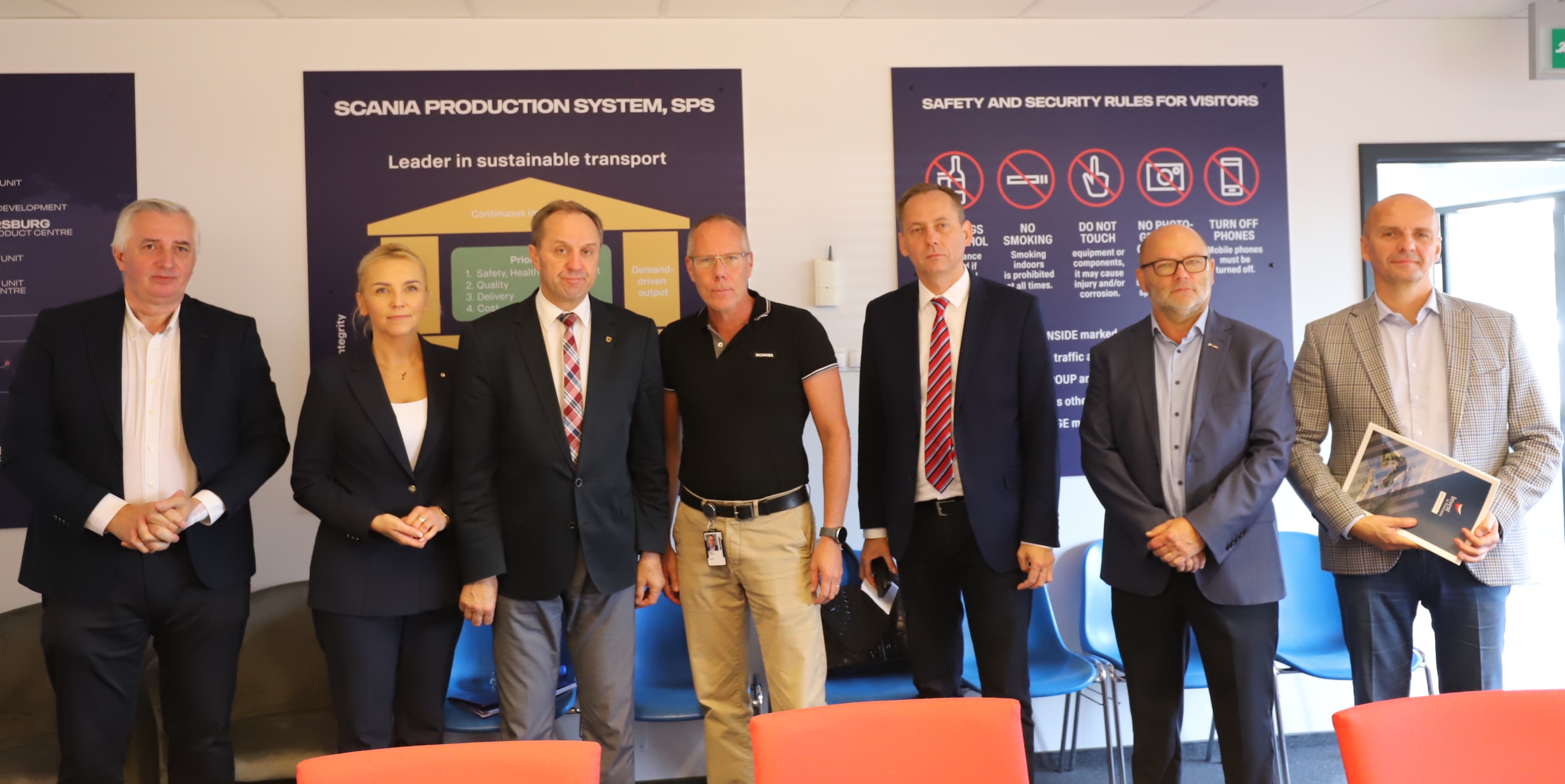Scania cooperates with the Pomeranian Regional Government and other local public institutions in finding new jobs for the redundant workers.
The spectre of a social disaster resulting from the withdrawal of the Scania Group from bus production in Słupsk is receding. After the employer signed agreements with its employees in cooperation with local government institutions, a coordinated campaign is underway to help the redundant workers find new employment.
Scania Production Slupsk was established in 1992 and has so far been one of the largest employers in the city. By the end of the first quarter of 2024, it intends to completely cease operations at its bus body manufacturing plant in Slupsk.
– In order to maintain profitability and competitiveness, the Scania Group had to revise its growth strategy and restructure its operations. Bus production at the Slupsk plant will be gradually phased out. However, it is important to emphasise that Scania will not completely disappear from the local market, remaining in the production of bus chassis – says Robert Eriksson, Managing Director of Scania Production Slupsk.
– Scania has taken numerous measures to secure the departing employees. In this process we are supported by: President of the City of Slupsk Krystyna Danilecka-Wojewodzka and local institutions, i.e. ZUS and the District Labour Office. We have also established cooperation with the Marshal’s Office and its subordinate institutions to ensure appropriate support for the redundant employees – says Lilianna Łuczkiewicz, HR Director at Scania Production Slupsk.
Employees received an adequate social package and support from the employer, including severance pay, subsidised courses and training, and even relocation. However, the main problem for those made redundant was the search for a new job. Scania established cooperation in this area with the Provincial Labour Office and the Slupsk Poviat Labour Office. Support was provided by the Pomeranian Regional Development Agency, which manages the Slupsk Special Economic Zone, as well as the Pomerania Development Agency.
– I made contact with the management of the Scania Group and set up a task force, which I instructed to prepare a programme to help find employment for the redundant workers – says Mieczysław Struk, Marshal of the Pomorskie Voivodeship.
As part of a joint effort between Scania and local government institutions, a labour market survey was conducted to identify potential new employers. A selection of 60 entities that were willing to hire Scania employees was made and they were invited to the job fair to be held on 21 October. The fair will be aimed exclusively at Scania employees. More than 40 companies from various parts of Pomerania have already confirmed their presence at the fair. Local labour offices are starting a series of workshops for employees on preparing application documents, conducting interviews and active forms of job seeking.
– The aim of our activities is to help as many Scania employees as possible. As the coordinator of the Invest in Pomerania initiative, we have comprehensive knowledge of the development of the priority sectors in Pomerania, so we hope to be able to effectively connect candidates with potential employers or provide them with retraining opportunities – says Piotr Ciechowicz, Vice-President, Pomerania Development Agency.
– In parallel, in consultation with Scania, work is underway to prepare an investment offer for the real estate on which the bus factory in Slupsk has operated so far. The aim is to attract an investor who could launch another production plant on the basis of the existing infrastructure. The optimal direction could be the electromobility sector. Slupsk has great potential for this, due to the Slupsk Bioenergy Cluster being developed in the city – adds Miroslaw Kamiński, Pomeranian Regional Development Agency.
Scania’s difficulties are due to negative global market developments in the bus segment. This has resulted in decline in orders for new buses and has resulted in a permanent loss of profitability for the segment. The bus segment has been hit hard by the negative effects of the coronavirus pandemic and although the market situation is gradually normalising, the pace of recovery is insufficient.
– I appreciate the efforts of the Scania Group management, which, despite the difficult situation, has come up with concrete proposals to support the redundant workers. It is good that they transparently presented a timetable for the gradual phasing out of production. This has allowed us to plan our actions effectively. By acting together, we will be able to help the redundant workers – adds Mieczysław Struk.
The job fair, scheduled for 21 October this year, will take place in the “Gryfia” hall. The organisation of the fair is actively supported by both Scania and all participants in the working group, including the City of Słupsk. More than 40 employers will participate and present their job offers. Career advisors from local labour offices will provide support to Scania employees during the fair, and will present additional offers submitted to the offices.




















